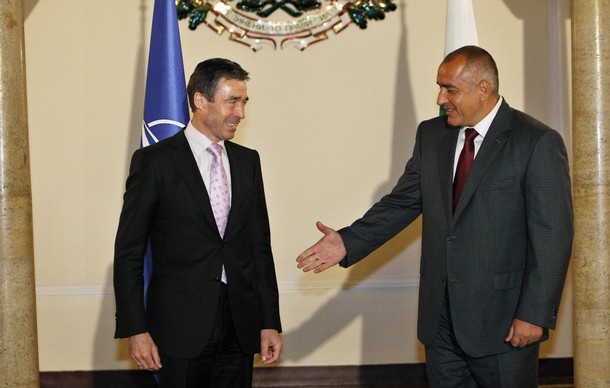
While Romania and Bulgaria both joined the EU in 2007, it is clear the two new members still have a long way to go to satisfy standards set by the European Commission for anti-corruption reforms.
An EU Commission document released earlier this week updated the status of Romanian and Bulgarian efforts in combating rampant fraud, corruption, and organized crime present in their countries. The report holds some stern words for Romania, saying its performance reveals “important shortcomings.” Specifically, “Romania did not show sufficient political commitment to support and provide direction to the reform process, and demonstrated a degree of unwillingness within the leadership of the judiciary to cooperate and take responsibility.”
The Commission criticizes Romania primarily for undermining its own anti-corruption force, the National Integrity Agency (abbreviated ANI in Romanian). Set up to examine political conflicts of interest and investigate citizens with unexplained wealth, recent amendments by Romanian Parliament have undercut the agency’s authority. According to the Commission these actions represent “a serious step back” in Romania’s battle against corruption, and put “at risk the positive track-record which ANI had achieved and puts Romania in clear breach of its accession commitments.”
Romania’s president, Traian Basescu, has responded by acknowledging much work remains to fight corruption, but claiming the Commission overreacted: “I think the phrasing is unfair, and therefore I must react and show that Romania is meeting its commitments, that we are determined to see them through.”
Language in the report regarding Bulgaria, on the hand, is markedly more positive. Mark Gray, EU Commission spokesman, says, “For the first time, we see real political will in Bulgaria to push through reform.” Bulgarian Prime Minister Boiko Borisov, a former policeman, describes this most recent commission report (the fourth on this issue) as the most positive yet for his nation. He goes on, “We will focus on developing the ‘political will’ we were praised for in the report. We are going to take more action in the coming next weeks and months.”
Bulgaria has launched a campaign to hunt underworld bosses and graft-prone officials. Detention facilities are packed with suspects and prosecution offices are swamped in investigations.
However, these initiatives have produced just one high-profile conviction – of businessman Mario Nikolov, who was handed a 12-year prison sentence in a four year-old case on charges of embezzling €7.5 million in EU farm aid through fraudulent documents. He is still at large and appealing.
Given the slow pace of anti-corruption progress the Commission clearly points out that Bulgaria is not out of the woods yet. “The Commission analysis shows that important deficiencies remain in the judicial practice both at the level of prosecution and at the level of court. The judicial process in Bulgaria lacks initiative and professional capacity. Complex investigations show lack of direction and purpose, procedures are too formal and too long and often fail in court.”
A Romanian newspaper, Jurnalul, questions how the Commission can praise Bulgaria despite its court system’s sluggishness. “So once again Romania is lagging behind Bulgaria…the tone of remarks made in the July 20 report couldn’t be more different toward these two countries. Even on the question of organised crime, one of Sofia’s [Bulgaria] greatest problems, the Commission has mentioned significant strides, in spite of the fact that the trials are proceeding at a snail’s pace!"
Scott Bleiweis is an intern with The Atlantic Council editorial office. He is currently pursuing a masters degree in International Studies with the Korbel School of International Studies at the University of Denver. Photo credit: Reuters Pictures.
Image: Bulgaria%20PM%20Borisov.jpg
